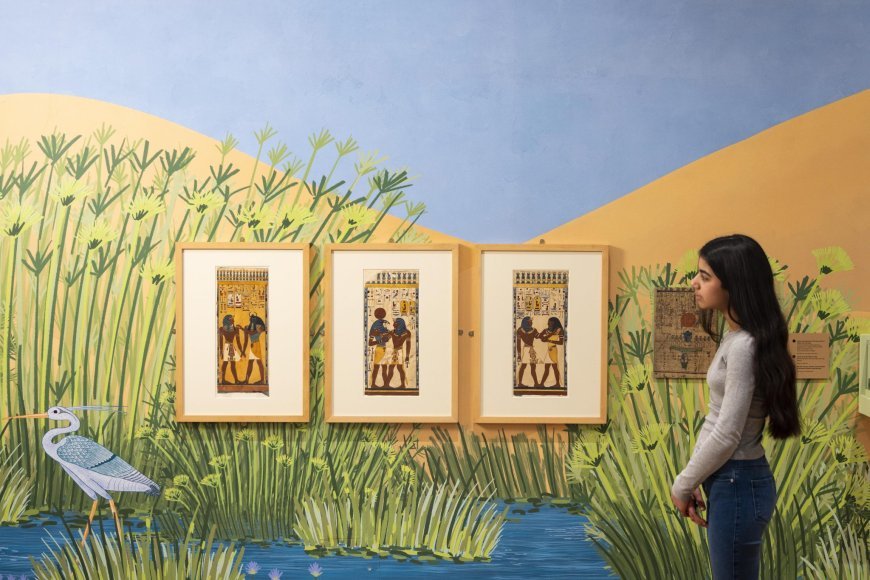In a remarkable stride toward redefining the global cultural and artistic dialogue, the Sharjah Art Foundation has unveiled its newest initiative—April Acts 2025, under the poignant theme “to carry new formations.” Running from April 18 to 20, 2025, this multi-day event offers more than just a platform for artistic expression—it becomes a convergence point for activism, creativity, dialogue, and resistance.
The event marks the first edition of April Acts, envisioned not merely as a festival, but as an invitation to rethink how communities gather, reflect, and act in response to the rapidly changing world. With pressing global challenges including displacement, ecological destruction, social injustice, and cultural homogenization, April Acts aspires to challenge existing systems and co-create sustainable futures, grounded in empathy, equity, and collective power.
A Weekend of Purposeful Gatherings
Held within the artistic and architectural heart of the Sharjah Art Foundation, April Acts transforms familiar gallery spaces into dynamic zones of knowledge exchange, performance, and conversation. The program is deeply informed by the conceptual ground laid for the upcoming Sharjah Biennial 16 (SB16), and functions as a prelude to the major event. It offers audiences a concentrated taste of the curatorial vision and theoretical lens that will define SB16, focusing on the urgency of forming communal, life-sustaining structures amidst societal disruption.

Curated with intention and vision, the three-day event unfolds under the guidance of Hoor Al Qasimi, President and Director of the Sharjah Art Foundation. Her opening remarks are expected to frame the Foundation’s broader commitment to cultural equity, interdisciplinary dialogue, and grassroots engagement. The theme—“to carry new formations”—evokes a powerful metaphor, hinting at transformation, migration, adaptability, and the birth of new social architectures through shared experience.
Dialogues Across Fields and Borders
A central feature of April Acts 2025 is its rich panel discussions, featuring leading voices from archaeology, activism, indigenous knowledge systems, feminist scholarship, and urban theory. One such panel, titled “Archaeology: The Burden of Extraction,” dives into the politics of cultural preservation and colonial legacies in knowledge production. By interrogating how archaeological practice often parallels exploitative models of resource extraction, the panel encourages critical reflection on ethical stewardship and cultural ownership.

Another important discussion, “Women’s Knowledge as a Source of Activism,” explores how generational wisdom, oral traditions, and embodied practices passed down by women serve as acts of resistance in many communities. Drawing from diverse geographies—from the Sahel to South Asia—panelists reflect on how these knowledge systems inform environmental conservation, political resilience, and creative expression.
In a time when institutional knowledge is often siloed and inaccessible, April Acts breaks down those barriers. Through multi-voiced, multilingual panels and open forums, the event re-centers the narrative around those who are frequently unheard or marginalized—transforming the act of speaking into a radical gesture of reclamation.
Artistic Practice as Radical Response
Beyond discourse, April Acts offers a vibrant lineup of artist talks, workshops, and performances, curated to showcase how art becomes a mechanism for resistance, restoration, and renewal. Artists from Africa, Latin America, the Middle East, and Southeast Asia present projects that explore themes such as displacement, ecology, memory, and autonomy.
One of the featured artists, working with indigenous textile traditions, uses her installation to weave together ancestral patterns and climate data, creating a visual tapestry that speaks both of loss and continuity. Another performer uses spoken word and movement to tell the story of generational trauma caused by war and economic migration—transforming the stage into a sacred space for collective healing.
Workshops include hands-on sessions in sustainable design, storytelling, and ritual-making, encouraging participants to become co-creators rather than passive observers. These interactive moments are not mere educational experiences—they’re calls to action, nudging attendees to envision how art can generate real-world impact.
Knowledge as a Public Resource
Key to the success and vision of April Acts is its accessibility. All programs are open to the public and free of charge, reflecting the Sharjah Art Foundation’s deep commitment to cultural inclusion and community engagement. From students and scholars to artists and curious citizens, the event encourages participation from a broad cross-section of society.
In her welcome speech, Noora Al Mualla, Director of Learning and Research at the Foundation, underscores the importance of decolonizing knowledge: “We believe in knowledge that is lived, shared, and felt—not only archived. April Acts is about recognizing that knowledge comes from the margins, the kitchens, the refugee camps, and the street corners—not only the universities.”
By foregrounding lived experience and alternative epistemologies, April Acts dismantles the notion that authority belongs solely to experts. Instead, it embraces collective intelligence, intergenerational dialogue, and grassroots wisdom as crucial components of cultural production and policy making.
A Model for the Future
April Acts 2025 is more than a cultural initiative—it is a model for how art institutions can evolve into platforms for activism, dialogue, and transformation. At a time when global polarization, censorship, and ecological collapse threaten the very fabric of society, programs like April Acts present a radical alternative: one that is grounded in mutual care, intellectual courage, and visionary thinking.
The decision to anchor the program in Sharjah—a city long celebrated for its cultural leadership in the Arab world—is deliberate. Sharjah’s dynamic arts ecosystem, marked by a blend of tradition and experimentation, provides fertile ground for this kind of reimagining. As the lines between art, life, and activism become increasingly blurred, events like April Acts assert that cultural programming can no longer be neutral—it must take a stance, engage critically, and build bridges.
Looking Ahead
With the success of this inaugural edition, April Acts is poised to become a regular fixture in the region’s cultural calendar, setting the tone for more inclusive and interdisciplinary cultural events. As global crises grow in scale and complexity, there is an urgent need for gatherings that are not only reflective but generative—spaces that do not merely discuss problems but actively shape the solutions.
April Acts 2025 delivers just that: a powerful affirmation that art and thought are not luxuries but necessities. They are tools for survival, imagination, and resistance. They carry new formations—toward justice, toward joy, and toward a future we can all co-create.
Do follow Uae stories for more Updates
Smooth Drive Ahead: New Bridge Brings Big Relief to Dubai-Sharjah Commuters












